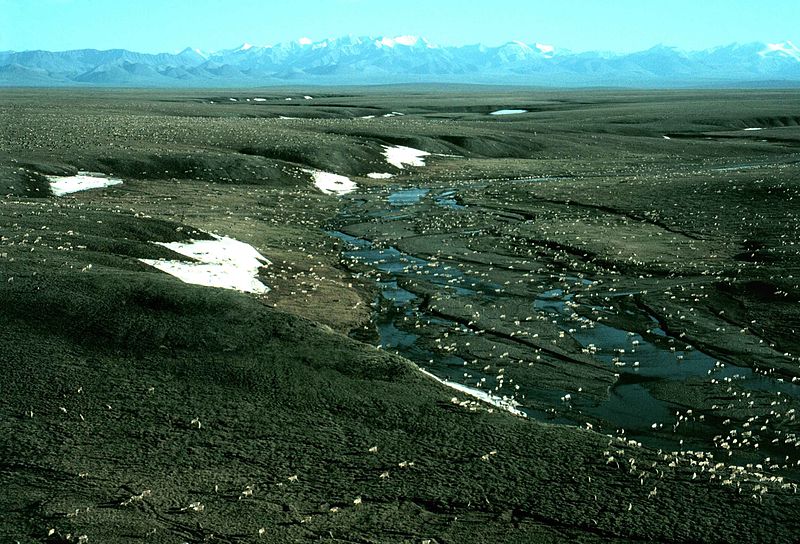The Arctic National Wildlife Refuge is home to caribou, polar bears, grey wolves, more than 200 bird species, Dall sheep, musk oxen, and the Gwich’in people who have called it home for generations. It is also a rich target for oil and gas drilling companies, but a bill before Congress would designate the area a permanent refuge, and ban drilling in perpetuity. The Episcopal Public Policy Network is advocating for this plan via its 30 days of action for the environment. The Episcopal News Service explains why this area is so important to Episcopalians:
On April 21 – the day before Earth Day – as part of the Domestic and Foreign Missionary Society’s 30 Days of Action campaign, Episcopalians will be encouraged to advocate for coastal plain’s wilderness designation.
Sitting at the top of the Arctic refuge on the coast of the Beaufort Sea, just east of the Sourdough Bay and Prudhoe Bay oil fields, the coastal plain is the calving ground for the Porcupine caribou herd, so named for the nearby Porcupine River.
The Gwich’in people, who have depended on the caribou for thousands of years, refer to the coastal plain as “the sacred place where life begins.”
The Gwich’in, 90 percent of them Episcopalians, have opposed their conservative state officials to protect the coastal plain from development and oil drilling. The wilderness designation also would protect the cultural and subsistence rights of the Gwich’in people.
“We are dependent on the Porcupine caribou herd for our survival and if the health of that herd is threatened, it threatens our way of life. One day we’ll have to go back to simpler living and we won’t have that if the herd is gone,” said Princess Daazhraii Johnson, a lifelong Episcopalian and former executive director of the Gwich’in Steering Committee.
According to Johnson, 95% of Alaska’s North Slope is already open to developers.
“Getting into the refuge is symbolic. … It will send a message that there are no permanently protected places, [that] no place is sacred,” she said. “Our thirst for extracting oil is going to trump that.”
The Episcopal Church has partnered with the Gwich’in Steering Committee to advocate for the plain, its Porcupine caribou, and its people.
The Episcopal Church at its 77th General Convention in 2012 passed legislation saying it “stands in solidarity with those communities who bear the burdens of global climate change,” including indigenous people.
“The Episcopal Church, the larger faith-based community, and others have been really supportive of the Gwich’in, but to me there is a bigger, broader picture,” said Johnson. “We need a more compassionate economy and we need to think about climate change – the most affected people being indigenous, but all people are affected.”
Read the ENS story here, and sign up for the EPPN’s 30 days of Action here.
Photo by U.S. Fish and Wildlife Service, public domain. Posted by Rosalind Hughes

